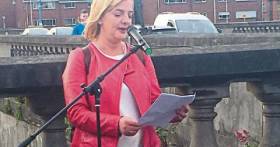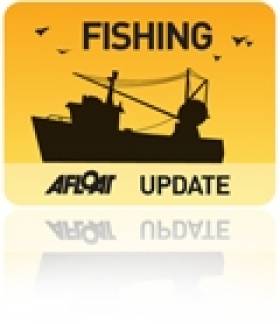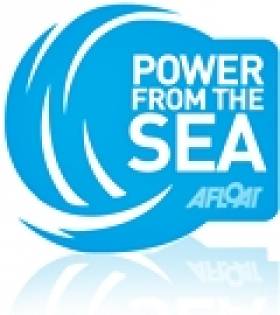Displaying items by tag: MEP
Port of Galway: Upgrade 'Could Become Naval Base’ Says MEP
An upgraded Port of Galway could potentially be used as a navy base, says a West of Ireland MEP.
Midlands-North-West MEP Colm Markey, who sits on the European Parliament's Transport Committee, spoke in light of last month's report from the Defence Forces Commission.
The MEP, who has done extensive work towards obtaining Trans-European Transport Network status (TEN-T) for Galway Port, said the proposal made 'perfect sense'.
"Alongside enormous potentials in offshore wind, hydrogen production, and tourism expansion, Galway port acting as a naval base is another layer of potential for an upgraded port," he said.
"The Commission on the Defence Forces report recognised the need for heightened naval activity.
"There could be a need for a naval port along the west coast, and given the proximity to Renmore Barracks, Galway port makes perfect sense," he added.
But he acknowledged that this would only make sense 'following significant investment in the port, and parallel to the delivery of other key service capacity for the port'.
Connacht Tribune reports more here to include that the CEO of Galway Harbour Company led a recent delegation to Brussels.
MEP Hits Back At Minister of State Over Port Comments
#ShannonEstuary - Liadh Ní Riada, the Ireland South MEP writes Limerick Leader has hit back at Minister of State Patrick O’Donovan, after he criticised her for supporting a maritime cluster in Cork and neighbouring ports.
Limerick TD O’Donovan, Fine Gael, accused Ms Ní Riada of forgetting about Limerick, which is in her constituency, given that Foynes port is one of the deepest ports in Ireland.
The Sinn Fein MEP said she was “slightly bewildered” by his comments.
“He seems to think that my support for a maritime cluster in Cork amounts to some sort of attack on Limerick.
“Of course, this is demonstrable nonsense, in fact in giving my support to the project I specified that such a development would not just be to the benefit of Cork but would draw in all the ports in the Ireland South region,” added the MEP, who is herself from Cork.
For more from the newspaper, click here.
Higgins Asks EU for Progress on Shark Finning Laws
"Sharks are captured and their fins cut off before the remaining carcasses are thrown back into the sea. The practice was made illegal in the EU in 2003, but under the present regulations, Member States are able to issue special permits to exempt fishing vessels from the ban," the North West MEP explained.
Under the exemption, the weight of fins kept from the catch must not exceed 5% of the live weight of the shark catch. However, reports have found the fins of some shark species did not typically represent 5% of the live weight of a shark, creating a loophole that meant finning could take place unnoticed.
"Anti-finning campaigners want to see the adoption of a requirement that sharks be landed with their fins naturally attached to their bodies. It is an issue that needs to be addressed urgently and I would ask the Commission to update MEPs on their progress towards new legislation in this area which will completely outlaw shark finning," Mr Higgins added.
Globally, sharks are captured for their meat, fins, liver and oil. However, it is the fins that command high prices, fetching up to 300 euros/kg in Hong Kong.
Kelly to Give Keynote Address at Wind Energy Conference
Mr Kelly is a keen supporter of wind energy and through his presence on the key Energy Committee in the European Parliament, has called for Ireland to generate more electricity from this resource in order to become less dependent on imported fossil fuels and eventually export power to lucrative EU markets.
The IWEA's Annual Conference takes place over the 24th-25th March 2011 at the Four Season's Hotel, Dublin.
Simon Coveney Appointed Marine Minister
Cork sailor Simon Coveney (38) has been appointed as Minister of Agriculture, Food and Marine in the new cabinet of the Fine Gael/Labour Government formed yesterday.
The announcement has been welcomed by various marine interests pleased to see Marine back at the cabinet for the first time since the Department was dismantled by Fianna Fail's Bertie Ahern in 2002.
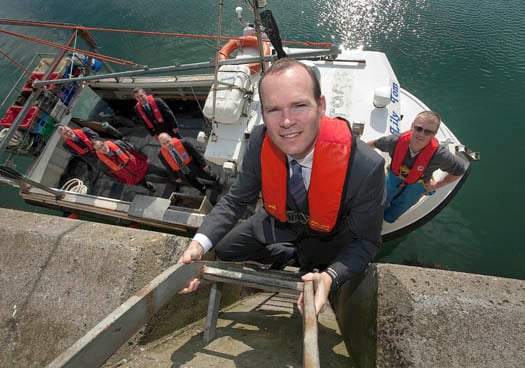
Marine Minister Simon Coveney TD
The appointment means Taoiseach Enda Kenny has kept good an election promise to reinstate the Marine department. A decade of lost opportunties has meant the sector has suffered through lack of infrastructure and coastline planning.
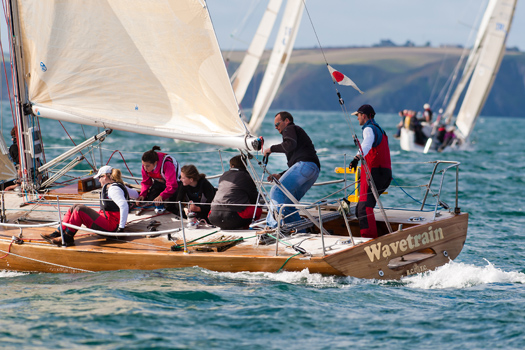
Simon Coveney at the helm of his yacht Wavetrain. Photo: Bob Bateman
"Simon is someone who understands the Sea as a sailor himself but also in his work as an MEP where he was involved in a number of major European maritime projects. This is a great opportuinty for the Marine. We look forward to working with him to develop this untapped resource." said David O'Brien of the Irish Marine Federation.
Simon was first elected to the Dáil in 1998 as one of Fine Gael's youngest TD's aged 26. He replaced his father Hugh Coveney TD following his untimely death.
Simon follows his father in to the post of Marine Minister. Hugh held the post in 1994.
Simon holds a B.Sc. in Agriculture and Land Management from Royal Agriculture College, Gloucestershire. He was also educated at Clongowes Wood College, County Kildare; University College Cork, and Gurteen Agricultural College, County Tipperary.
A keen fan of all competitive sport he has worked as a sailing instructor at his club Royal Cork Yacht Club in Crosshaven and been involved in many sailing regattas.
In 1997/8 he led the "Sail Chernobyl Project" which involved sailing a boat 30,000 miles around the world and raising €650,000 for charity.
In 2006 he contributed to RTE's series The Harbour and in a memorable quote, the Cork TD and former MEP said: "When somebody asks me the question, what's the one thing that's special about Cork?, I'd say the harbour."


























